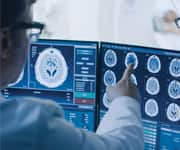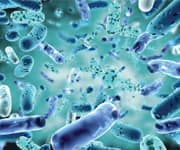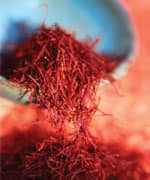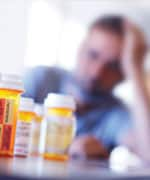Life Extension Magazine®
Many people who suffer from depression and anxiety are resistant to conventional treatments.
Data from the National Health and Nutrition Examination Survey (NHANES) for the 2011-2014 period show that anti-depressant drug use increased 65% since 1999.1
Individual responses to depression treatments vary greatly from one person to another.
Among those taking antidepressants, 30%-50% find their initial treatment doesn’t work,2,3 and two-thirds experience at least one side effect—including nausea, weight gain, fatigue, sexual dysfunction, and in some cases, suicidal thoughts.3,4
Scientists have found a new way to relieve mood disorders: probiotics.
Two unique strains of these helpful bacteria have been found to significantly reduce stress, anxiety, and depression.
One human study showed a 50% improvement in depression scores with these two probiotics, and another showed a 55% improvement in anxiety scores—all without side effects.5,6
Scientists have now combined these probiotics with an extract of the spice saffron that has been shown to be equally as beneficial as anti-depressant drugs to reduce depression—without side effects.7-10
The result is a safe, powerful new way to relieve depression and anxiety and boost overall mood.
Microorganisms and Mood

Probiotics are beneficial bacteria that keep the microorganisms in your gut balanced.
Decades of research have established that they promote digestive, immune, and oral health. But more recent research reveals that probiotics also support psychological well-being.5,6,11-16
It may sound incredible. But it works. Here’s how:11
The intestinal neural system is composed of 200-600 million neurons, cells that receive, process, and transmit information.17
Gut microorganisms can secrete many kinds of neurotransmitters, chemicals that send signals from one neuron to another.18 They include GABA (gamma-aminobutyric acid), which relieves anxiety and boosts mood.
Certain intestinal bacteria increase brain levels of BDNF (brain-derived neurotrophic factor), a growth factor known to promote neuron development, survival, and function, and support synapse health. Some neurotransmitter changes during the stress state are believed to be caused not by stress itself, but by undesirable intestinal microorganisms.
Stress can reduce intestinal barrier function, causing “leaky gut” and enabling pro-inflammatory molecules to enter the blood and immune system. That, in turn, negatively affects mood.
Taking specific probiotic strains can improve and redistribute species of microbes to relieve anxiety and depression.
This interaction between the gut and the brain is known as the gut-brain axis. It explains how microorganisms residing in our intestine can affect how we feel.11,16,19,20
The use of probiotic strains to alter mood is so promising, scientists have dubbed the field psychobiotics.12-14
Probiotics Regulate Stress

Studies have found that a combination of two unique strains of probiotics relieves symptoms of stress, anxiety, and depression.5,6
The two probiotics are Lactobacillus helveticus R0052 and Bifidobacterium longum R0175.
Working through the gut-brain axis, they lead to:
Greater production of the anxiety-relieving neurotransmitter GABA,21
Increased levels in the hippocampus, the brain’s memory-processing region, of doublecortin, a protein important in the movement and differentiation of neurons. Doublecortin is also a marker for new brain-cell formation in an experimental model of chronic stress,22
Decreased levels of pro-inflammatory cytokines and increased production of anti-inflammatory cytokines,5,6,23 and
A tightening of the “leaky gut” induced by stress.22
To test these effects, researchers compared these two probiotics with Valium® (diazepam), a drug known for its calming effects.5
In an experimental model of anxiety, rats were divided into three groups, receiving either a saline solution, the probiotic combination (L. helveticus R0052 and B. longum R0175), or Valium® an hour before being exposed to the anxiety-inducing intervention.5
The animals receiving Valium® and those taking probiotics showed significantly decreased anxiety and stress during the two-week study, compared with the saline group. In this study, the probiotic combination had similar anxiety-reducing properties to those of this well-established drug.5
Dramatic Results in Human Studies

Next, scientists conducted randomized, placebo-controlled human trials on the probiotics.
One study was conducted on 55 volunteers, aged 30-60, with mild depression or anxiety. Each day, some participants took a placebo, while others took 3 billion CFUs (colony forming units, a measure of the number of microorganisms) of the probiotic combination.5
After 30 days, probiotic-taking subjects had the following changes in scoring on standard tests, compared to the placebo group:5
50% improvement in depression scores,
36% improvement in hospital anxiety and depression scale,
49% improvement in global severity index, a measure of overall psychological distress,
60% improvement in anger-hostility scores, and
13% decrease in urinary free cortisol, a hormonal measure of chronic stress.
The probiotic group also displayed reductions in self-blame and improvements in problem-solving skills.5
A follow-up study was conducted on 25 of this trial’s participants whose urinary free cortisol was below the median at baseline. That means, to begin with, they had lower stress levels.6
Even this low-stress group demonstrated marked improvements in mood with probiotic supplementation, including 55% improvement in anxiety scores and 50% improvement in depression scores.
Unlike prescription medication for anxiety and depression, the probiotics didn’t cause any significant side effects.6
Another human study assessed the impact of the two probiotics on stress-induced digestive symptoms.24 About 60% of patients with depression and anxiety have intestinal disturbances.9
This double-blind, controlled, randomized study enrolled participants aged 18-60 who self-reported at least two symptoms of stress. They were given either a placebo or the probiotic combination at the same dosage as in the other studies.24
After three weeks, probiotic-treated subjects, compared to the placebo group, had 7.6 times the reduction in stress-induced abdominal pain, 2.1 times the reduction in stress-induced nausea and vomiting, and 2.9 times the reduction in flatulence and gas.24
Once again, the probiotics were found to be safe and did not cause unpleasant side effects.
Saffron Boosts Mood

The spice saffron has long been used in traditional Persian (Iranian) medicine to treat depression.9,25 Preclinical research suggests that it may act as an antidepressant.26
Unlike the probiotics, which work on the gut-brain axis, saffron extract acts directly on the brain to relieve depression and anxiety. Saffron may beneficially modulate neurotransmitters that are important for mood.7,10,27,28 These include:
Serotonin, thought of as the body’s natural “feel-good” chemical,
Dopamine, that contributes to feelings of pleasure and satisfaction, and
Norepinephrine, that increases alertness, arousal, and attention.
After reporting on the antidepressant effects of saffron in mice,26 researchers conducted a double-blind, randomized human trial. Forty adults diagnosed with major depression were divided into two groups. One took 30 mg of saffron twice daily. The other took a placebo.25
After six weeks, people taking saffron improved their scores on the Hamilton Depression Rating Scale (which has been used for years to assess depression) by approximately 56%, compared to the placebo group’s improvement of approximately 22%.25
There were no significant differences in side effects between the groups.25
Saffron vs. Antidepressant Drugs

In a series of head-to-head tests, scientists set out to compare a saffron extract with three common antidepressant drugs.
Tofranil®
In a double-blind trial, scientists randomly divided 30 patients who suffered from depression into two groups. One took 30 mg of saffron daily. The other received 100 mg of the antidepressant Tofranil® (imipramine) daily.10
After six weeks, the saffron and Tofranil® were found to be equally beneficial in the treatment of mild to moderate depression.10
There were no significant differences in side effects except that the Tofranil® group suffered dry mouth and unwanted sedation.10
Prozac®
To compare the potency of saffron to the antidepressant Prozac® (fluoxetine), scientists conducted a double-blind study with 40 adults with depression. They were randomly assigned to receive either daily doses of saffron extract (30 mg) or Prozac® (20 mg).9
Six weeks later, saffron was shown to be as effective as Prozac® in the treatment of mild to moderate depression, with no significant differences in side effects.9
Celexa®
And in another randomized study of 66 patients who had “major depressive disorder [and] anxious distress”,7 scientists compared saffron to the antidepressant Celexa® (citalopram).
One group took 30 mg/day of saffron while the other took 40 mg/day of Celexa®.7
After six weeks, both groups showed similar, significant improvements in scores for both depression and anxiety.7 Frequency of side effects was not significantly different between the two groups.
No serious side effects were seen with saffron in any of these studies. And no sexual side effects of any kind, which are common with antidepressants, were found for saffron.7,9,10
Unique Combination of Antidepressant Ingredients
For the first time, scientists have combined the mood-boosting probiotics Lactobacillus helveticus R0052 and Bifidobacterium longum R0175 with saffron extract for maximum antidepressant and anti-anxiety benefits. The researchers used dosages based on clinical studies demonstrating safe efficacy.
To optimize this formula, a unique form of saffron extract was developed after studying the results of several clinical trials. It is an 80% ethanolic extract, standardized to 11% crocin and 2% safranal—the percentages of these active compounds found to be most beneficial in the trials.
Summary

Findings from laboratory and human studies have identified two probiotic strains that can significantly reduce depression and anxiety, without the side effects that often come with antidepressant drugs.
Clinical studies also show that saffron extract significantly improves depression scores and is equally as beneficial as common antidepressant drugs, also without unwanted effects.
These two probiotics and saffron have been combined to provide a unique option to combat anxiety and depression.
If you have any questions on the scientific content of this article, please call a Life Extension® Wellness Specialist at 1-866-864-3027.
References
- Available at: https://www.cdc.gov/nchs/products/databriefs/db283.htm. Accessed August 6, 2019.
- Alboni S, Poggini S, Garofalo S, et al. Fluoxetine treatment affects the inflammatory response and microglial function according to the quality of the living environment. Brain, Behavior, and Immunity. 2016 2016/11/01/;58:261-71.
- Available at: https://www.consumerreports.org/cro/2013/09/best-treatments-for-depression/index.htm. Accessed August 6, 2019.
- Available at: https://www.mayoclinic.org/diseases-conditions/depression/in-depth/antidepressants/art-20049305. Accessed August 13, 2019.
- Messaoudi M, Lalonde R, Violle N, et al. Assessment of psychotropic-like properties of a probiotic formulation (Lactobacillus helveticus R0052 and Bifidobacterium longum R0175) in rats and human subjects. Br J Nutr. 2011 Mar;105(5):755-64.
- Messaoudi M, Violle N, Bisson JF, et al. Beneficial psychological effects of a probiotic formulation (Lactobacillus helveticus R0052 and Bifidobacterium longum R0175) in healthy human volunteers. Gut Microbes. 2011 Jul-Aug;2(4):256-61.
- Ghajar A, Neishabouri SM, Velayati N, et al. Crocus sativus L. versus Citalopram in the Treatment of Major Depressive Disorder with Anxious Distress: A Double-Blind, Controlled Clinical Trial. Pharmacopsychiatry. 2017 Jul;50(4):152-60.
- Shahmansouri N, Farokhnia M, Abbasi SH, et al. A randomized, double-blind, clinical trial comparing the efficacy and safety of Crocus sativus L. with fluoxetine for improving mild to moderate depression in post percutaneous coronary intervention patients. J Affect Disord. 2014 Feb;155:216-22.
- Noorbala AA, Akhondzadeh S, Tahmacebi-Pour N, et al. Hydro-alcoholic extract of Crocus sativus L. versus fluoxetine in the treatment of mild to moderate depression: a double-blind, randomized pilot trial. J Ethnopharmacol. 2005 Feb 28;97(2):281-4.
- Akhondzadeh S, Fallah-Pour H, Afkham K, et al. Comparison of Crocus sativus L. and imipramine in the treatment of mild to moderate depression: a pilot double-blind randomized trial [ISRCTN45683816]. BMC Complement Altern Med. 2004 Sep 2;4:12.
- Liu L, Zhu G. Gut-Brain Axis and Mood Disorder. Front Psychiatry. 2018;9:223.
- Zhou L, Foster JA. Psychobiotics and the gut-brain axis: in the pursuit of happiness. Neuropsychiatr Dis Treat. 2015;11:715-23.
- Kali A. Psychobiotics: An emerging probiotic in psychiatric practice. Biomed J. 2016 Jun;39(3):223-4.
- Sarkar A, Lehto SM, Harty S, et al. Psychobiotics and the Manipulation of Bacteria-Gut-Brain Signals. Trends Neurosci. 2016 Nov;39(11):763-81.
- Dinan TG, Stanton C, Cryan JF. Psychobiotics: a novel class of psychotropic. Biol Psychiatry. 2013b Nov 15;74(10):720-6.
- Rieder R, Wisniewski PJ, Alderman BL, et al. Microbes and mental health: A review. Brain Behav Immun. 2017 Jan 25.
- Furness JB, Callaghan BP, Rivera LR, et al. The enteric nervous system and gastrointestinal innervation: integrated local and central control. Adv Exp Med Biol. 2014;817:39-71.
- Strandwitz P. Neurotransmitter modulation by the gut microbiota. Brain Res. 2018 Aug 15;1693(Pt B):128-33.
- Kelly JR, Minuto C, Cryan JF, et al. Cross Talk: The Microbiota and Neurodevelopmental Disorders. Front Neurosci. 2017;11:490.
- Clark A, Mach N. Exercise-induced stress behavior, gut-microbiota-brain axis and diet: a systematic review for athletes. J Int Soc Sports Nutr. 2016;13:43.
- Lallemand. Unpublished Supplier Communication: GABA production. 2017, data on file.
- Ait-Belgnaoui A, Colom A, Braniste V, et al. Probiotic gut effect prevents the chronic psychological stress-induced brain activity abnormality in mice. Neurogastroenterol Motil. 2014 Apr;26(4):510-20.
- Arseneault-Breard J, Rondeau I, Gilbert K, et al. Combination of Lactobacillus helveticus R0052 and Bifidobacterium longum R0175 reduces post-myocardial infarction depression symptoms and restores intestinal permeability in a rat model. Br J Nutr. 2012 Jun;107(12):1793-9.
- Diop L, Guillou S, Durand H. Probiotic food supplement reduces stress-induced gastrointestinal symptoms in volunteers: a double-blind, placebo-controlled, randomized trial. Nutr Res. 2008 Jan;28(1):1-5.
- Akhondzadeh S, Tahmacebi-Pour N, Noorbala AA, et al. Crocus sativus L. in the treatment of mild to moderate depression: a double-blind, randomized and placebo-controlled trial. Phytother Res. 2005 Feb;19(2):148-51.
- Karimi GR, Hosseinzadeh H, KHALEGH PP. Study of antidepressant effect of aqueous and ethanolic extract of Crocus sativus in mice. Iranian Journal Of Basic Medical Sciences. 2001;4(3):11-5.
- Hausenblas HA, Heekin K, Mutchie HL, et al. A systematic review of randomized controlled trials examining the effectiveness of saffron (Crocus sativus L.) on psychological and behavioral outcomes. J Integr Med. 2015 Jul;13(4):231-40.
- Ettehadi H, Mojabi SN, Ranjbaran M, et al. Aqueous Extract of Saffron (Crocus sativus) Increases Brain Dopamine and Glutamate Concentrations in Rats. 2013.
- Available at: https://adaa.org/about-adaa/press-room/facts-statistics. Accessed August 7, 2019.

